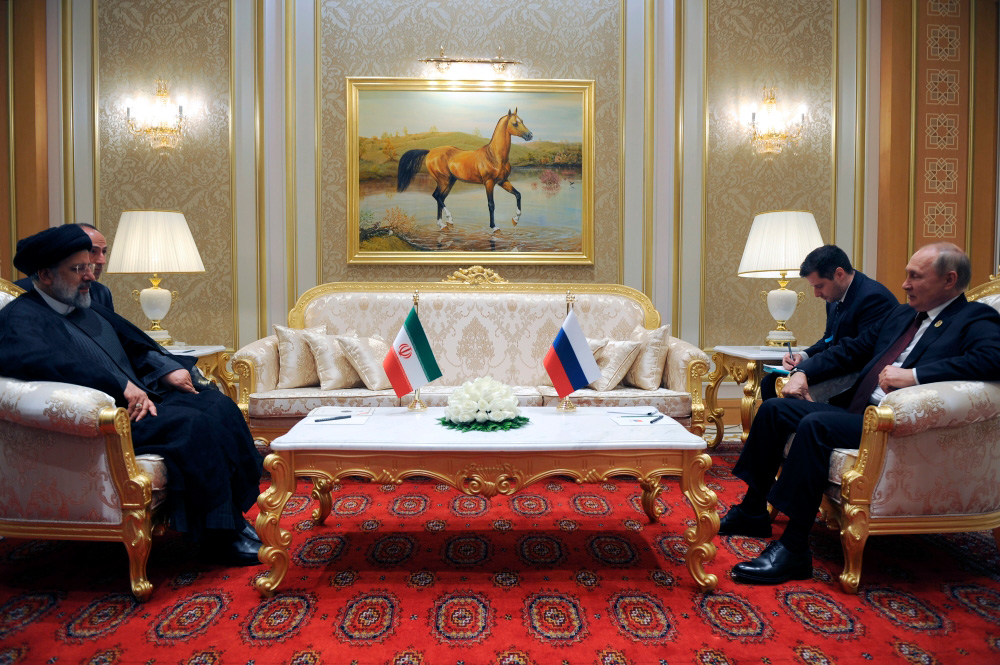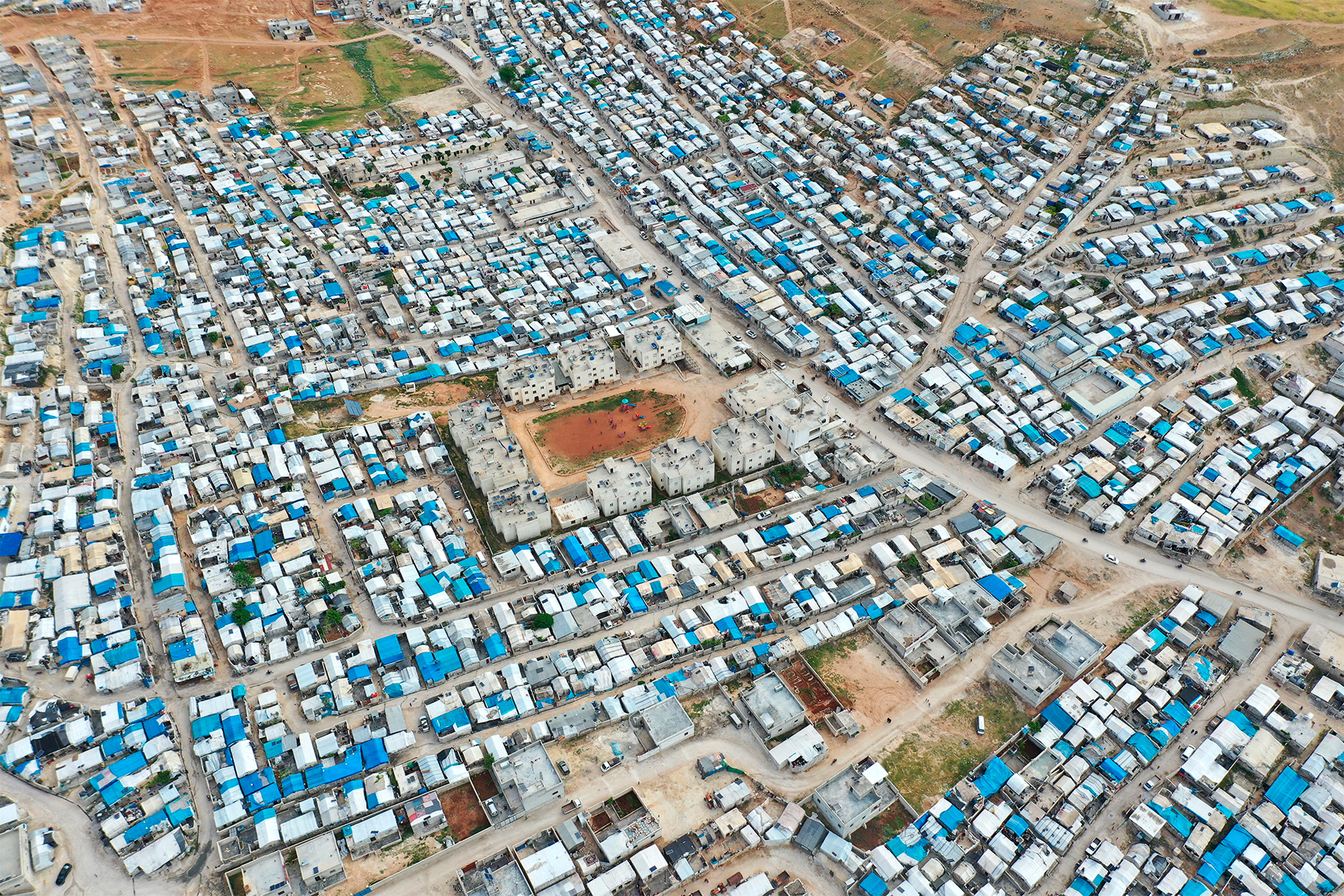On February 24, 2022, the Russia–Ukraine military conflict began. Five months into it, the world has undergone global changes. Under the new conditions, Russia’s foreign policy in regions of the country’s strategic interest is changing as much. We can expect a sharp decline in Russia’s efforts to resolve the humanitarian crisis in Syria. The involvement of the Kremlin in Libyan affairs will also decrease. Moscow may not have the resources to defend its interests in Libya by military-political means in the event of another possible escalation.
Big changes await Russia’s economic cooperation with the Arab countries. On the one hand, due to problems with logistics and sanctions, cooperation may be difficult. On the other hand, Russia is reorienting its economy towards the East, which could have a positive effect on economic cooperation with the Arab East. The most interesting thing is how the food supply situation will develop. Arab countries are highly dependent on Russian and Ukrainian grain exports. That is why the conflict between these countries has such a strong impact on the MENA region. This will have an impact on how Russian-Arab relations will change in the future.
Some political cooperation will continue. This is especially evident in the example of the Arab countries of the Gulf. Not so long ago, the 5th Ministerial Meeting for Strategic Dialogue between GCC and Russia took place. The meeting discussed the situation in Yemen and Libya. In addition, the participants considered issues of further elaboration of Russian proposals for the creation of a collective security system in the Gulf zone. Thus, Russia's political influence in the region still remains, and it is possible that Moscow will be involved in a number of political projects. However, in my opinion, in the long term, this influence will be reduced gradually. The main question now is how much Russia will be considered a security provider after February 24.
U.S. President Joe Biden has now visited the Middle East, and this week, President of Russia Vladimir Putin also pays a visit to Iran, where he is expected to hold trilateral meetings with President of Iran Ebrahim Raisi and President of Turkey Recep Tayyip Erdogan on Syria's Astana process.
On February 24, 2022, the Russia–Ukraine military conflict began. Five months into it, the world has undergone global changes. Under the new conditions, Russia’s foreign policy in regions of the country’s strategic interest is changing as much. Among such regions are the Middle East and North Africa (MENA), which are traditionally in the focus of the Kremlin’s attention. Arab countries have taken an intermediate position in responding to Russia’s actions in Ukraine. Some of them supported the UN General Assembly resolution condemning Russia. However, unlike the U.S. and countries of the EU, the Arab world did not impose sanctions of their own. There are some difficulties on trade, but this is due to the desire of the Arab states to reduce the sanctions risks.
In recent years, the claim that the United States is leaving the Middle East has been popular in expert and academic circles. Some of them even spoke of Russia filling the emerging vacuum. However, the likelihood has now increased that Moscow’s activity in the MENA region will also significantly decrease. Nowadays, almost all the attention of Russia, and of the whole world, is focused on Ukraine. Some countries have already managed to use this to realize their own ambitions. In particular, Turkey announced the start of new military operation in Syria. Although Moscow has asked Ankara to abandon the operation, this is unlikely to influence the decision of President of Turkey Recep Tayyip Erdogan.
It seems to me that, at least in the coming months, and possibly years, we can expect a sharp decline in Russia’s efforts to resolve the humanitarian crisis in Syria. The involvement of the Kremlin in Libyan affairs will also decrease. Moscow may not have the resources to defend its interests in Libya by military-political means in the event of another possible escalation.
Big changes await Russia’s economic cooperation with the Arab countries. On the one hand, due to problems with logistics and sanctions, cooperation may be difficult. On the other hand, Russia is reorienting its economy towards the East, which could have a positive effect on economic cooperation with the Arab East. The most interesting thing is how the food supply situation will develop. Arab countries are highly dependent on Russian and Ukrainian grain exports. That is why the conflict between these countries has such a strong impact on the MENA region. This will have an impact on how Russian-Arab relations will change in the future.
There is some contradiction. On the one hand, dependence on Russian and Ukrainian food exports continues to persist. On the other hand, in the short term, the conflict creates the prerequisites for a reorientation to other markets—in particular, to buy grain from India. However, it should be taken into account that India, like other major food exporters, may not have enough resources to cover the needs of the Arab states quickly.
Moscow’s influence may be reduced in matters related to military-technical cooperation with the countries of the MENA region. Previously, the United States reacted quite sharply if someone bought Russian weapons. Among the most striking examples are the deal between Russia and Turkey for the purchase of S-400 long-range surface-to-air missile systems or the agreement with Egypt for the purchase of Su-25 aircraft. Washington opposed such purchases and responded with a threat of sanctions in order to force the countries of the Middle East to abandon Russian weapons. After February 24, the reaction to such purchases will be much stronger, and this may expand from traditional U.S. partners in the region to a wider range of states. Sanction risks are highly likely to lower the level of military-technical cooperation between Russia and the MENA countries.
Of course, the Arab countries take into account the risks of sanctions in economic matters, which can negatively affect trade as well as investment cooperation with Russia. At the same time, Russia and the MENA countries have a number of large long-term infrastructure and industrial projects. There are many projects in oil and gas, as well as in nuclear energy. Let’s pay attention to the position of Saudi Arabia. It shows that Riyadh values cooperation with Russia under the OPEC+ deal. It did not increase oil production despite requests from Washington.
Some political cooperation will continue. This is especially evident in the example of the Arab countries of the Gulf. Not so long ago, the 5th Ministerial Meeting for Strategic Dialogue between GCC and Russia took place. The meeting discussed the situation in Yemen and Libya. In addition, the participants considered issues of further elaboration of Russian proposals for the creation of a collective security system in the Gulf zone. Thus, Russia's political influence in the region still remains, and it is possible that Moscow will be involved in a number of political projects. However, in my opinion, in the long term, this influence will be reduced gradually. The main question now is how much Russia will be considered a security provider after February 24.
First published in Chinese in The Paper.






